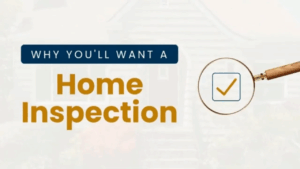4 Common Mistakes People Make Selling Probate Real Estate (And How to Avoid Them)
Selling probate real estate is a different ball game than a traditional home sale. If a decedent’s estate has property you intend to sell during probate, buckle up for a long ride with bumps, twists, and turns you didn’t see coming — unless you’ve got a good grasp on how this process works.
Probate is a legal process overseen by the court, where beneficiaries receive the financial and physical assets bequeathed to them in a will, and the estate’s debts are settled. The whole point of probate is to prevent fraud after someone dies, so you can bet the court will keep a close eye on what’s typically an estate’s largest asset: the house.
Each state has its own probate laws, but universally, probate entails detailed regulations on paperwork, timelines, deadlines, and a specific order of procedures that must be followed.
Avoid these mistakes below to prevent delays and problems that could crop up along the way in the sale of your probate property.
Mistake #1: Hiring inexperienced professionals to represent you during the probate process
In life, you get by with a little help from your friends.
Navigating the sale of a home during probate requires a lot of help from a seasoned probate attorney and a real estate agent well-versed in local probate regulations and procedures. Both professionals are essential for a successful process. Whether you were named as the executor in the will or the court appointed you as such, you’ll need to partner up with a dream team to get this house sold.
A probate attorney assembles necessary court documents, prepares and submits the probate petition, and speaks on your behalf before the overseeing judge. They also assist in managing life insurance proceeds, resolving income tax matters, and serve as your overall advisor throughout the probate proceedings.
Your real estate agent will usher you through the nitty-gritty details of the real estate transaction, including special contracts and documentation specific to your locale’s probate regulations. A top-notch agent also acts in an advisory role and helps to manage competing interests to guarantee a successful sale.
“A good real estate agent selling probate needs to be able to conduct themselves in a manner that is sensitive and respectful to the family, but with the ultimate goal of getting the property sold in the most cost-effective way,” says Jeremy Wages, a top-selling Texas agent with The Rhodes Team who specializes in probate sales.
If you pick the wrong agent, you’ll run into extra stressful situations that a true professional could diffuse — for instance, in the one sale Wages handled, about 30 people were involved, and one of the deceased’s children tried to hire an inexperienced agent who encouraged them to do all sorts of unnecessary repairs on the home.
“I just said, ‘Let’s look at: What is it going to cost to do it?’” Wages said. “How much time is involved in the process? Does this really make sense? When it was all said and done, it wasn’t worth it.”
Repairs also get complicated as the executor must determine if they are authorized to use estate assets to fund them.
Despite this, Wages successfully resumed the sale and ensured the family still earned money from the house. “We had to bridge the gap and work through all the different personalities. You need a realtor with experience dealing with probate and understanding the process.”







